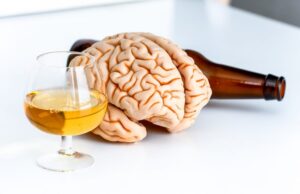
Why Losing Weight is So Difficult: Understanding the Process
Losing weight is a common goal for many, but it’s often accompanied by numerous challenges and frustrations, leading to doubts regarding why am I not losing weight. Understanding why losing weight is so difficult can help you approach your weight loss journey with a more informed perspective, including answers to the question as to why is exercise important to the process. Let’s explore the complexities of weight loss, finding out factors that make it challenging while providing insights into how to navigate these obstacles, and how visiting a super-speciality hospital in Lucknow can help you out. So, let’s get started.
The Biological Factors
One of the primary reasons losing weight is so difficult is due to biological factors. Our bodies are programmed to store energy in the form of fat to ensure survival during times of scarcity. When you reduce your calorie intake, your body responds by slowing down your metabolism to conserve energy. This natural response, known as adaptive thermogenesis, makes it harder to continue losing weight over time. This is one of the factors why you face difficulty losing weight.
The Role of Hormones
Hormones play a significant role in weight regulation. Leptin, a hormone produced by fat cells, signals to your brain that you have enough energy stored. However, when you lose weight, leptin levels decrease, leading to increased hunger and a decreased feeling of fullness. This hormonal change can make you feel like you are constantly hungry, even when you have eaten enough, thus making it difficult to stick to a calorie deficit. If you are wondering, why am I not losing weight, leptins might be the one to blame.
Why is Exercise Important?
Struggling to lose weight? You must understand that exercise is crucial for weight loss and overall health. It aids with calorie burn, has a positive effect on cardiovascular health, and improves the overall metabolism levels of the body. However, many weight loss aspirants wonder, “Why is exercise important?” It’s because physical activity not only aids in burning calories but also helps maintain muscle mass, which is essential for sustaining a higher metabolic rate. Despite its benefits, exercise alone may not always lead to significant weight loss if not combined with dietary changes.
Psychological Barriers
The mental and emotional aspects of weight loss are often overlooked but are crucial to understanding why you might be struggling to lose weight. Stress, depression, and anxiety can all impact your eating habits and motivation to exercise. Emotional eating, where food is used as a coping mechanism for negative emotions, can sabotage your weight loss efforts. Recognizing these psychological barriers and seeking support from a mental health professional can be beneficial.
Why Am I Not Losing Weight?
If you’ve been diligently working out and following a diet but still asking yourself, “Why am I not losing weight?” you’re not alone. There are several reasons for this. One possibility is that you might be underestimating your calorie intake or overestimating the calories burned through exercise. It’s also possible that your body has hit a plateau—a common phase where weight loss slows down despite ongoing efforts.
No Weight Loss After 3 Weeks of Exercise
Experiencing no weight loss after 3 weeks of exercise can be disheartening. This plateau can occur because the body has adapted to your new routine. Initially, you may lose weight quickly due to a loss of water weight and glycogen stores. As your body adjusts, weight loss can slow down. To overcome this, consider changing your workout routine, increasing the intensity, or incorporating different types of exercises to challenge your body in new ways.
Diet Quality Over Quantity
Focusing solely on calorie counting can sometimes lead to frustration and feelings of deprivation. Instead, prioritizing the quality of your diet is essential. Consuming nutrient-dense foods that are high in fibre, protein, and healthy fats can help you feel fuller for longer and reduce cravings. Moreover, a balanced diet supports overall health and can make the weight loss process more sustainable and enjoyable.
Difficulty Losing Weight: The Role of Genetics
Genetics can also play a role in your difficulty losing weight. Studies have shown that genetic factors can influence your body weight and fat distribution. Some people may have a genetic definition that is responsible for unwanted fat storage and slower metabolic levels. While you can’t change your genetics, understanding their influence can help you set realistic goals and expectations for your weight loss journey.
Importance of Sleep
When it comes to fat loss, sleep is often overlooked and ignored. Poor sleep can disrupt the balance of hunger hormones like ghrelin and leptin, leading to increased appetite and cravings, particularly for high-calorie foods. Additionally, lack of sleep can reduce your motivation to exercise and make it harder to stay on track with your diet. Ensuring you get enough quality sleep is essential for both weight loss and overall health.
Consistency is Key
One of the most critical aspects of successful weight loss is consistency. Many people experience setbacks or temporary lapses in their diet and exercise routines. It’s essential to view weight loss as a long-term commitment rather than a quick fix. Consistent changes and efforts can deliver the desired long-term results.
The Support System
Having a support system can make a significant difference when you are struggling to lose weight. Friends, family, or a support group can provide encouragement, accountability, and motivation. Sharing your goals and challenges with others can help you stay committed and feel less isolated in your journey.
Conclusion
Understanding why losing weight is so difficult involves considering a myriad of factors, including biological, psychological, and lifestyle elements. By focusing on the quality of your diet, incorporating regular exercise, addressing psychological barriers, and maintaining consistency, you can overcome the difficulty of losing weight and achieve your health goals. Want to know more about how you can lose weight in an effective manner? Visit a super-specialityhospital in Lucknow today.


